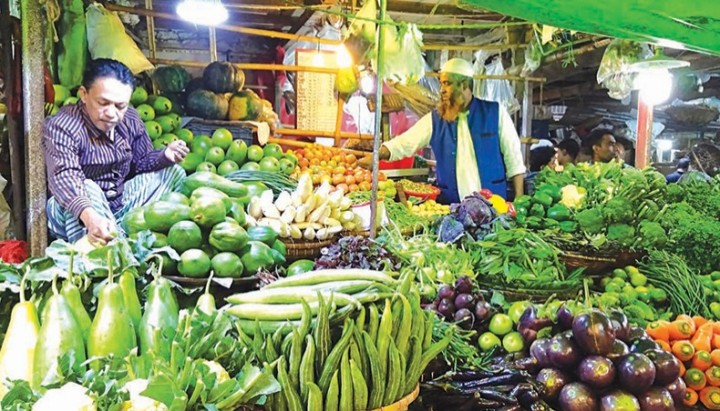Experts have suggested that the government's uninterrupted
strict market monitoring both at wholesale and retail levels can contain the
price hike of daily essentials, blaming the global pandemic
and recent Russia-Ukraine war for rising price of commodities.
They also stressed imposing ban on hoarding of essential
commodities, motivating people not to buy excess fearing crisis along with
activating regulatory system for market supervision to bring down prices of the
essentials at tolerable level.
The experts' opinion came as the prices of some essential
commodities are seen hike in city's kitchen markets.
Some commodities including rice, edible oil, atta, lentils,
onion, fish, meat and eggs have soared to some extent recently.
According to Trading Corporation of Bangladesh (TCB), the
rice price has slightly increased for last one year but the price of other
commodities mainly atta, maida have soared between 25 percent and 36 percent
while soyabean 24 percent to 46 percent.
Prices of some essentials are also even being found varying
from one market to another market in the city.
At the city markets, soyabean oil was seen to be sold at
Taka 170 per liter, mustard oil at Taka 220 per liter, beef at Taka 620-650 per
kg, mutton at Taka 950-1000.
The government must keep watch on the supply chain of food
items like rice, atta, lentil and soyabean oil, said former planning commission
member Prof. Dr. Sattar Mondal.
The noted economist, however, attributed the price hike of
essentials in the country to global pandemic and Russia-Ukraine war.
But, he also emphasised that the government should ensure
smooth supply of the commodities in the market.
The government needs to make mass people conscious as they do not go for 'excessive
buying' of essential commodities because such 'panicked buying' can make the
situation worse, he added.
As the price of edible oil shows upward trend, a section of
wholesalers has stockpiled huge quantities of soyabean oil through underhand
dealing with the oil importers companies, alleged retailers of some city
grocery markets.
"I have put an order for ten cartons or 40 bottles of
5-liter soyabean oil to the importer company recently but the company informed
me that they have no stock," Siddiqur Rahman, a retailer of Islam Traders
located at Barobagh Bazar of Mirpur-2.
He said he got two cartons of soyabean oil from another
company but it was sold within an hour.
Another retailer Monayem Khan of Emran store of Mirpur-2
said he gave an order for 20 cartons of oil to the importer company, but he was
supplied only two cartons.
As some buyers attributed the price hike to hoarding
essentials, retailers denied of stockpiling at their levels but admitted that
there can be some incident of stockpiling at wholesale level.
"There is no stock of soyabean oil at the retail level,
but stock can be made at the wholesale level," said M Zahidul Islam alias
Zahid, a retailer of Zahid general store of Kawran Bazar in Tejgaon area.
Some dishonest wholesalers have made a 'syndicate' and have
hoarded daily essentials, alleged Mohammad Masum of Mayer Doa General Store at
Kawran Bazar.
Noted economist Dr Quazi Kholiquzzaman opined that the
government must take tougher action against any irregularities in the markets
so that no one can create any artificial crisis.
He also put importance on government's continue monitoring
and revitalizing the state arm TCB to keep controlling the price of daily
commodities.
Former central bank governor Dr. Atiur Rahman however,
suggested the government for preparing a contingency plan on imported products
from the international market considering the Russia-Ukraine war as the long
term war could affect the supply of the imported products.
The government must lay emphasis on promoting cultivation of
mustard, which could be an alternative to the soyabean oil, he said, adding
that, "The government must tighten monitoring for smooth supply of
products in local markets."
"Boosting market monitoring is urgently needed so that
none can manipulate the commodity prices because people, especially the
low-income group, become victim of the situation," he added.








